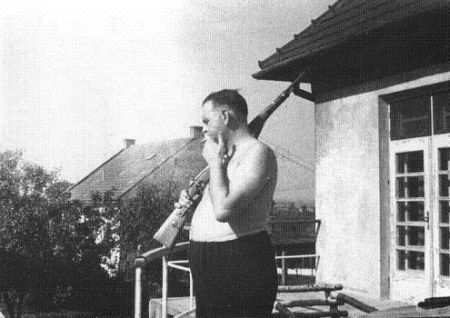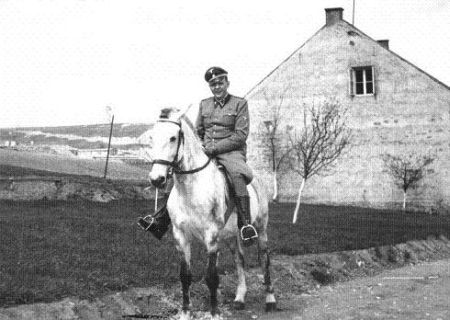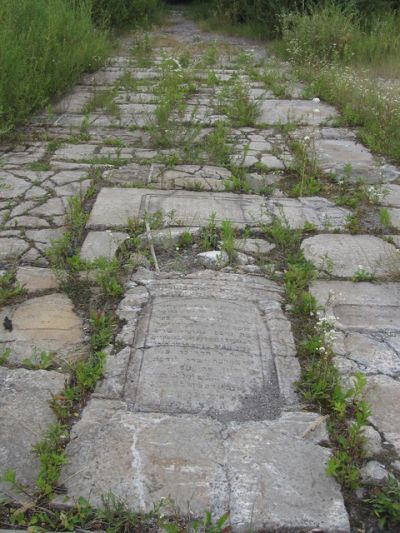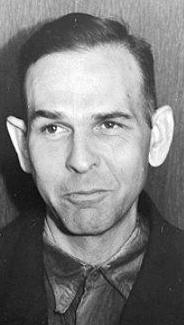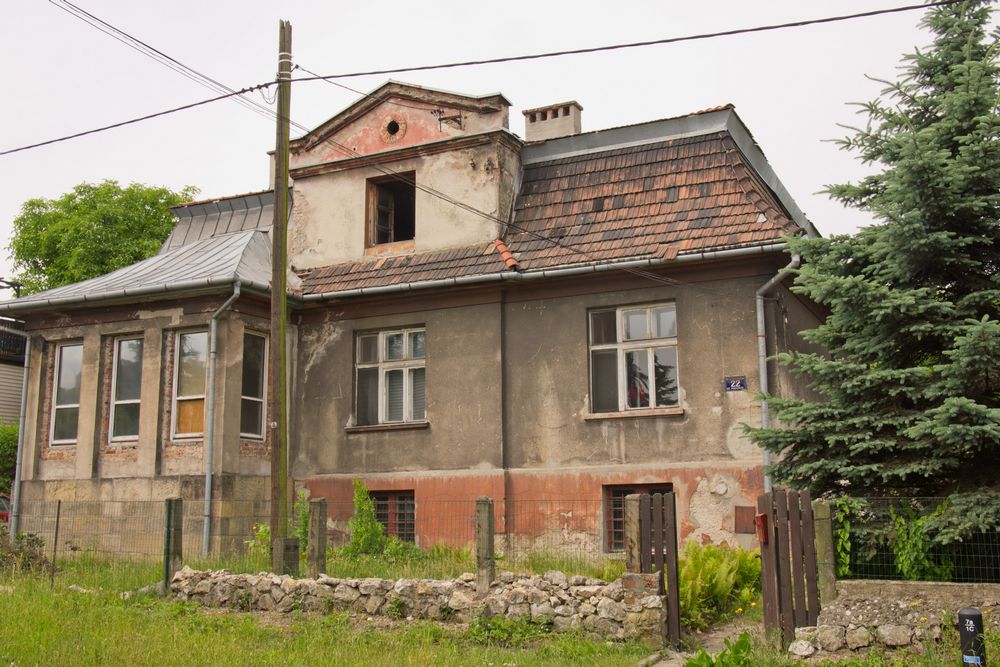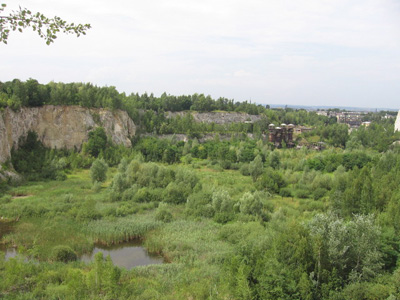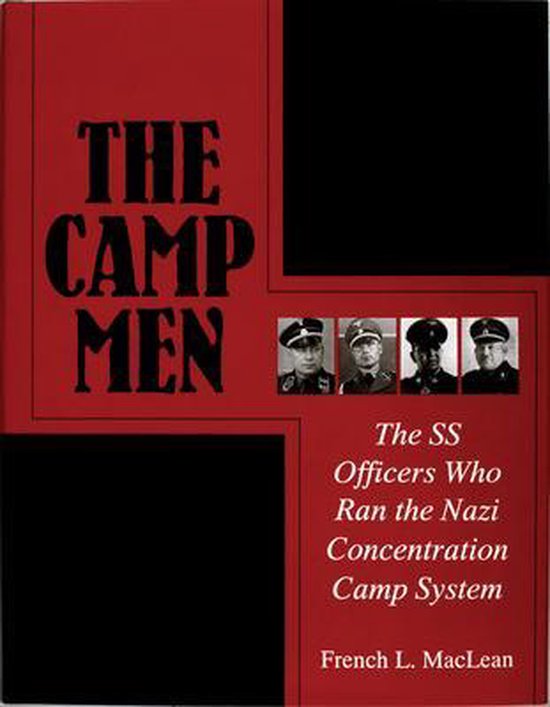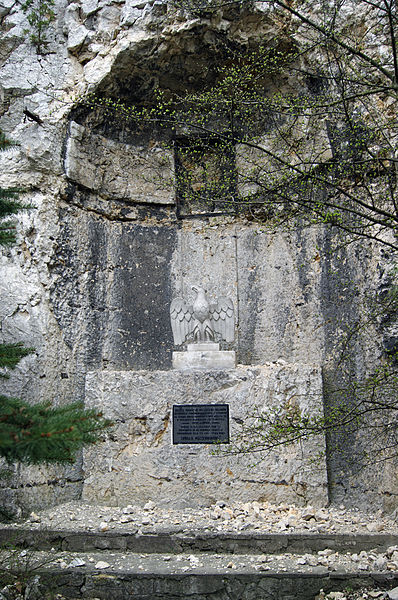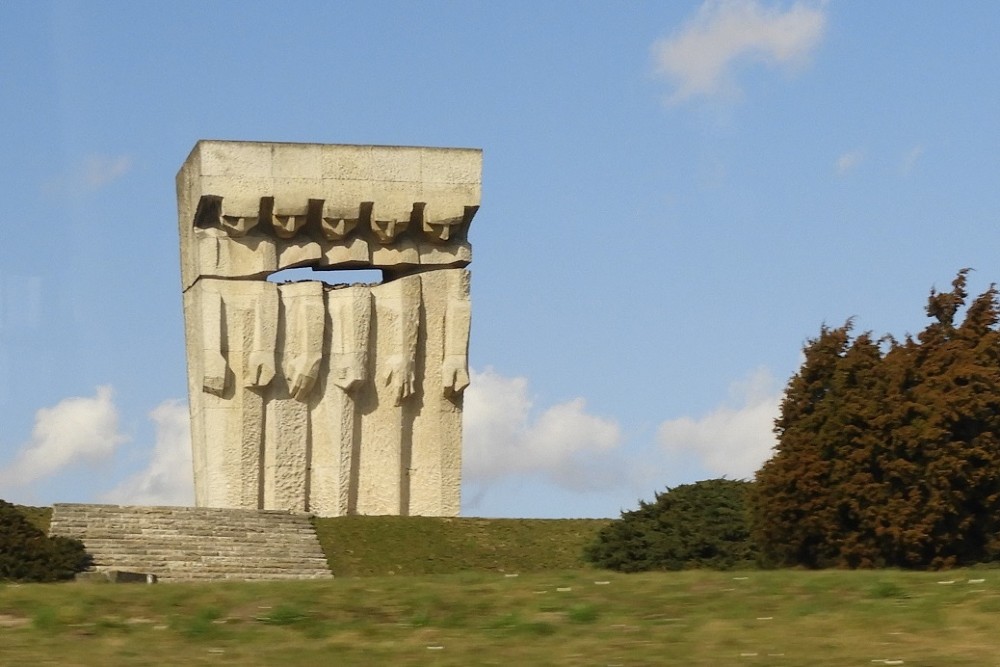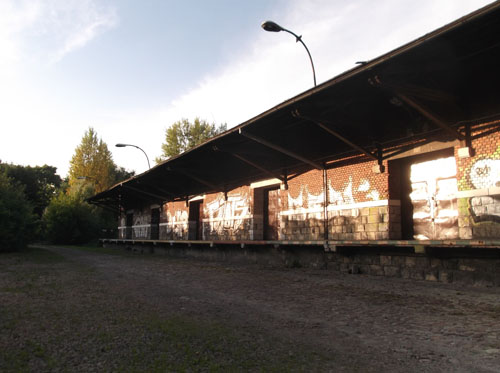Amon Goeth (1908-1946)
Austrian National Socialist
Amon Goeth was born on December 11th,1908 in Vienna where he was raised as a Roman Catholic. His grandfather and his father had a printing company where books on military and economic history were printed and bound. In high school Amon was mainly interested in the exact sciences. He wasn’t an intellectual, although in later years he would consider himself to be a true philosopher. At an early age he joined the National Socialist movement. At the age of 17 he became a member of the Austrian Nazi youth movement and as an adult he joined the Austrian Nazi party in 1930. In the same year, Goeth fled to Germany because he was wanted by the Austrian authorities on the basis of the accusation that he committed crimes with explosives. In the beginning of the thirties, Goeth smuggled money, weapons and information from Germany to Austria for the Austrian Nazis. A foundation for his later criminal activities was laid during that period.
In 1932, Goeth joined the NSDAP. His party number was 510764. In 1934, in Austria, he played a role in the failed Nazi putsch in Vienna. He was arrested by the Austrian police but he managed to escape.
He settled in Munich where he tried to start a publishing house. He got married there but rather quickly divorced. Because of this divorce he also broke with the Roman Catholic faith. After the divorce Goeth returned to Vienna where he got married a second time, in 1938. This marriage lasted and in 1939 his first child was born. The child died after seven months. Goeth would have two more children with his wife.
Aktion Reinhard
In 1940, Goeth joined the Schutzstaffel, with number 43673. His career as a professional killer had begun. Until May 30th, 1942, Göth was employed as a SS-Untersturmführer at the "Volksdeutsche Mittelstelle" in Katowice in Poland. On June 12th,1942, Goeth was assigned to the staff of Odilo Globocnik, the Austrian born SS- und Polizeiführer at Lublin. He was deployed here at the field of action of the "Judenumsiedlung" or "resettlement of the Jews", a euphemism for the deportation and mass killings in the context of Aktion Reinhard.
Aktion Reinhard was the code name for the Nazi operation with the aim of destroying more than two million Jews in five districts of the Generalgouvernement, which were Warsaw, Lublin, Radom, Krakow and Lvov. This operation was named after Reinhard Heydrich, who, until his death on June 4th , 1942 had been the main organizer of the Holocaust. Goeth was involved in the clearing of several smaller ghettos but after a conflict with SS-Sturmbannführer Hermann Höfle, chief of staff of Aktion Reinhard and another Austrian, he was transferred to Krakow. Goeth had been accused of corruption by Höfle. This warning, however, was not an incentive for Goeth to stop his corrupt activities.
Concentration camp Plaszow
Goeth was promoted to camp commandant of the Plaszow camp near Krakow on February 11th,1943. The man who promoted him was SS-und Polizeiführer Julian Scherner. Camp Plaszow had been established as a labor camp (Arbeitslager) and in January 1944, it became a concentration camp. The number of prisoners in Plaszow ranged between 2,000 in March 1943 to 24,000 in May of 1944. A large part of the prisoners came from the Krakow ghetto. Many Jews perished in the Plaszow camp. They were buried in mass graves that also contained the victims that died during the "evacuation" (another Nazi euphemism) of the Krakow ghetto.
As camp commandant Amon Goeth was probably one of the cruellest and most sadistic officers within the entire Totenkopf camp organisation of the SS. In Plaszow prisoners were often hanged in public. People were collectively punished for the transgressions of individuals and torture was a daily phenomenon. The infamous morning ritual from Goeth was that he would shoot his rifle from the balcony of his villa, killing prisoners at random . In Plaszow one was never certain of one’s survival, death always lurked around the corner. One prisoner named Poldek Pfefferberg described this: "When you saw Goeth, you saw Death."
One prisoner with the surname Pankiewicz described Goeth as follows - " Tall, handsome, heavily built with thin legs, head in proportion, blue eyes and approximately 40 years old. He was dressed in a black leather coat, held a whip in one hand and a small semi- automatic pistol in the other hand, and there were two enormous dogs with him." These dogs, Ralf and Rolf, had been trained to attack prisoners on command and to rip them apart. Many prisoners were killed or heavily injured and maimed by the jaws of these pets.
Uncertainty for their lives was, probably, the hardest part of the prisoner’s stay in Plaszow. Goeth would kill victims randomly, without any incentive. Former prisoner Anna Duklauer Perl: " I knew Goeth, one day he hanged a friend of mine just because he had been rich, he was the devil incarnate!" In contrast with for example Rudolf Höss, camp commandant of Auschwitz, and Adolf Eichmann, the organizer of the deportations to the death camps, Goeth was not a bureaucrat who incited subordinates to kill people. He was a real sadist who had no qualms about killing prisoners himself. He felt a disdain for officers who left killing and abuse to NCOs and ordinary soldiers. Excessive alcohol use and chronic lack of sleep contributed to the ruthless and capricious character of Goeth.
After Goeth had been promoted to SS-Hauptsturmführer where he skipped the rank of SS-Obersturmführer on April 20th 1944 a "health roll call" or Gesundheitsaktion was held in Plaszow on May 7th of 1944. Naked prisoners had to stand on parade and it was the task of Goeth, his personnel and the camp physician to select the healthy prisoners from the weaker and sick ones. The action was carried out with music from Strauss, ballads and love songs. On the parade ground were banners with the message: "For every prisoner a fitting job." The prisoners that were deemed to be fit for work were selected for jobs, but the weak and the diseased were sent by train to Auschwitz, to be gassed there. Ultimately 1,400 prisoners were deported after personal intervention by Göth after this "health parade." After this "cleaning up operation", room was made for new prisoners. When the Red Army advanced on Plaszow more prisoners would be deported in July and August of 1944. Their destinations would be Stutthof, Flossenbürg and Mauthausen among others.
The evacuations of Krakow, Tarnow and Szebnie
As well as his assignment as camp commandant, Goeth was involved in evacuations of ghettos and labor camps in the vicinity of Krakow since the beginning of 1943. On March 13th and 14th, 1943, the ghetto of Cracow was evacuated under the tactical supervision of Goeth. From March 21st,1941, this ghetto had contained approximately 68,000 Jews. The strategic supervision of the evacuation of the ghetto was in the hands of SS-Sturmbannführer Willi Haase. Goeth was in charge in the ghetto itself. Approximately 8,000 Jews were deported to Plaszow camp. Almost 2,000 were killed in the ghetto and the rest was deported to extermination camps. During this evacuation Goeth killed several Jews himself.
In the Tarnow ghetto there had been several evacuations in June and in September of 1942. The final evacuation took place on September 2nd,1943. Göth was once again in charge and was assisted by 200 SS men. Goeth seems to have killed between 30 and 90 women and children during this evacuation. Those Jews fit for work went to Plaszow, the remainder were deported to Auschwitz.
The evacuation of the labor camp Szebnie near Jaslo was also led by Goeth. The action began at September 21st, 1943 and lasted till February of 1944. On the first day 700 inhabitants were killed. They were transported to a forest in Tarnowiec where they were killed on Goeth’s orders.
During all these evacuations of ghettos and labor camps Goeth profited greatly from clothes, jewellery, furniture and other assets left behind by the former inhabitants of the ghettos. He confiscated them and sold them on the black market or kept them for himself. The value of these stolen goods was in the millions of zlotys. In addition to taking these goods that really belonged to the Reich, Goeth was active in the black market. He was also bribed by the German industrialist Oscar Schindler.
In Plaszow there were 900 Jews who were employed by the Schindler factory. In order to be able to exploit this cheap Jewish labour, but ultimately out of pity, Schindler wanted to protect his Jews from the terror in Plaszow camp. Schindler appeased Goeth with luxury items from the black market and this way he could protect his Jewish employees from the massacres at the hands of Goeth. Between Schindler and Goeth a relationship developed that Goeth possibly interpreted as friendship. It is noteworthy that they were born in the same year and were both raised as Roman Catholics. Besides this they both had a weak spot for alcohol and beautiful women. Both had mistresses as well as wives.
Goeth’s corrupt life was reason for the SS to arrest him on September 13th,1944. A higher ranking SS officer with the name of Eckert investigated the corrupt ways of Goeth. Evidence was found in his villa, a sum of around 80,000 Reichsmark. Goeth could not explain how he came about this sum. As well as the cash, a million cigarettes were found in the same villa. His apartment in Vienna looked more like a warehouse than a place to live due to the stockpile of stolen goods there. Goeth was charged with black marketing and corruption but never faced a trial. There was no time because the war rapidly came to its conclusion. Suffering from diabetes, Goeth was released in January,1945 and was transported to a sanatorium in Bavarian Bad Tölz. The prisoners in Plaszow, in the meantime, had been transferred to other camps and evidence of the mass killings had been destroyed. The bodies in the mass graves around Plaszow were dug up and were subsequently burnt. The last 2,000 prisoners were deported to Auschwitz on January 14th , 1945.
Arrest and punishment
Goeth was arrested in the SS sanatorium in Bavaria by troops from George Patton. He was imprisoned in Dachau concentration camp. Subsequently he was prosecuted by the Polish High Court for the mass murder of Jews and the violent liquidation of several ghettos and camps. The trial was held from August 27th until the 31st and from September 2nd until the 5th in 1946.Goeth accepted responsibility for what had happened in the camp but pleaded innocence because he claimed he only acted in accordance with what was expected from him. He maintained that executing prisoners was part of his responsibilities and that all orders for the executions and the deportations had been signed by his superiors and thus were not his crimes. Goeth said that the number of killings attributed to him was vastly exaggerated. According to Goeth he only executed saboteurs and this was but a daily and normal phenomenon during a war. Many former prisoners were however brought before the Court and they could testify accurately as to Goeth’s crimes.
Goeth asked for forgiveness for his deeds to the president of the Court but did not receive any. The Court judged that Goeth did far more than was expected of him; the large majority of the massacres at Plaszow were instigated on his own initiative. He was duly found guilty of all charges. On September th,1946, Goeth was sentenced to death. He was hanged on September 13th, 1946, in Krakow, not far from the infamous camp where under his command 8,000 Jews had been murdered and many thousands more had been mistreated, maimed, humiliated and traumatized. Before his death he saluted Hitler one last time; showing no repentance for his deeds.
Definitielijst
- concentration camp
- Closed camp where people are being held captive that are considered to be anti- social, enemies of the state, criminal or unwanted individuals. These groups mostly do not get a fair trial or are condemned to doing time in a camp.
- Generalgouvernement
- That part of Polish territory occupied by the Germans in 1939. It was an autonomous part of Greater Germany. In August 1941 Eastern Galicia was added to the Generalgouvernement. It was governed solely by Germans under direction of Generalgouverneur Hans Frank. It was to become a full German province inhabited only by German colonists.
- ghetto
- Part of a town separated from the outside world to segregate Jewish population. The establishment of ghettos was intended to exclude the Jews from daily life and from the rest of the people. From these ghettos it was also easier to deport the Jews to the concentration and extermination camps. Also known as “Judenviertel” or Jewish quarter.
- Holocaust
- Term for the destruction of European Jewry by the Nazis. Holokauston is the Greek term for a completely burnt sacrifice.
- Jews
- Middle Eastern people with own religion that lived in Palestine. They distinguished themselves by their strong monotheism and the strict observance of the Law and tradition. During World War 2 the Jewish people were ruthlessly persecuted and annihilated by the German Nazis. . An estimated 6,000,000 Jews were exterminated.
- Mauthausen
- Place in Austria where the Nazi’s established a concentration camp from 1938 to 1945.
- mine
- An object filled with explosives, equipped with detonator which is activated by either remote control or by colliding with the targeted object. Mines are intended to destroy of damage vehicles, aircrafts or vessels, or to injure, kill or otherwise putting staff out of action. It is also possible to deny enemy access of a specific area by laying mines.
- Nazi
- Abbreviation of a national socialist.
- putsch
- Coup, often involving the use of violence.
- Red Army
- Army of the Soviet Union.
- Totenkopf
- “Death’s head”. Symbol that was used by the SS. Also the name of an SS Division.
Images
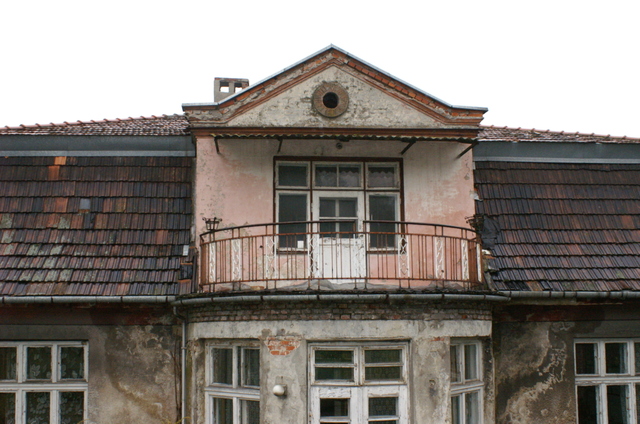 The villa of Goeth at camp Plaszow. The same balcony as on the photo above can be seen. Source: John Smeets.
The villa of Goeth at camp Plaszow. The same balcony as on the photo above can be seen. Source: John Smeets.Information
- Article by:
- Kevin Prenger
- Translated by:
- Peter ter Haar
- Published on:
- 19-01-2025
- Feedback?
- Send it!
